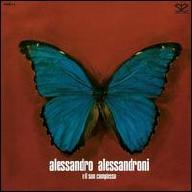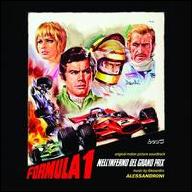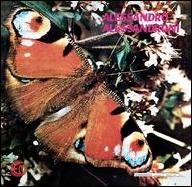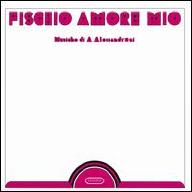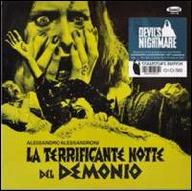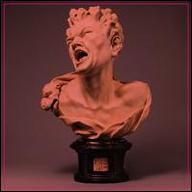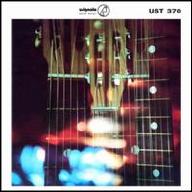During the early '60s, Alessandroni crossed paths professionally with a slightly younger former boyhood friend, Ennio Morricone, who, after a few years as a musician working in jazz clubs, had begun to emerge in the field of movie music. Morricone had just scored his first Western and was working on another, and wanted to add some new sounds to his work. Alessandroni's guitar and his abilities as a whistler came to the fore on the resulting score for #Guns Don't Argue, within the framework of a traditional Western ballad. But that success was merely a toe in the water in terms of their collaboration -- Morricone had another project in the pipeline, called #A Fistful of Dollars (1964), a Western that was anything but traditional, and it was here that Alessandroni began collaborating with him in the making of some much more important music, and utilizing far more of his range as a guitarist as well.
With a lonely, echo-drenched whistle over a repetitive guitar figure, with added flutes, whip-cracks, and Alessandroni's Duane Eddy-style electric guitar coming in along with a wordless male chorus -- courtesy of Alessandroni's vocal group, now expanded to a dozen or more members and renamed I Cantori Moderni -- the haunting title track redefined the sound of Western movie music. Ironically, Alessandroni could almost have been the Brian Wilson of Italy -- he certainly made use of some of the same sources of inspiration, including the Four Freshmen and the twangy guitar of Duane Eddy or Dick Dale, that had led Wilson and the Beach Boys to their brand of surf music, but simply utilized them in a different combination that seemed somehow uniquely suited to the Western. Alessandroni subsequently worked with Morricone on most of the latter's Western scores of the period, including the gorgeous theme for #A Pistol for Ringo -- which was a dazzling showcase for Alessandroni as a guitarist and I Cantori Moderni, in a hauntingly lyrical mode, far from their usual rough vocal fills on the Sergio Leone Western scores. He was all over the main title theme for #The Good, the Bad and the Ugly, and his guitar and vocal group were also featured prominently on #Once Upon a Time in the West. He and Morricone also worked on such non-Leone Westerns as #A Gun for Ringo -- which was a dazzling showcase for his guitar and I Cantori Moderni's singing in a much more lyrical mode, in place of their usual rough fills in the Leone movies -- #The Big Gundown, #Navajo Joe, and the non-Western # Without Apparent Motive. By the end of the 1960s, as Hollywood began noting the success that Leone was achieving with his Italian-made horse operas, the production of Westerns began anew in earnest in the United States, and the brief given composers such as Dominic Frontiere and others on movies such as #Hang 'Em High was to emulate Morricone, which was also meant to emulate Alessandroni. Thus, American session players such as Tommy Tedesco ended up paying homage to the Rome-based guitarist who'd started out a fan of the Four Freshmen, Duane Eddy, and Dick Dale. And thanks to the continued interest in Morricone's scores and their durability as music, as well as the critical attention accorded Leone's movies, Alessandroni remains one of the most prominent and influential musicians ever to play on film scores or, through that medium, to influence popular music around the world. Over the decades since his music was popularized in film music, Alessandroni has worked with dozens of star performers, including Americans such as Paul Anka, and most of Italy's top talent. ~ Bruce Eder, Rovi


